afterLoad (456.47KB) (2.51ms)
afterInitialise (1.28MB) (27.3ms)
afterRoute (869.87KB) (10.98ms)
beforeRenderComponent com_tags (20.38KB) (382μs)
afterRenderComponent com_tags (2.95MB) (99.16ms)
afterDispatch (47.11KB) (1.92ms)
beforeRenderRawModule mod_articles_category (READ MORE...) (372.12KB) (5.14ms)
Before Access::preloadComponents (all components) (56.7KB) (701μs)
After Access::preloadComponents (all components) (103.05KB) (837μs)
Before Access::getAssetRules (id:8 name:com_content) (840B) (25μs)
After Access::getAssetRules (id:8 name:com_content) (7.05KB) (68μs)
afterRenderRawModule mod_articles_category (READ MORE...) (5.08KB) (43.92ms)
beforeRenderRawModule mod_tags_popular (Search) (4.81KB) (35μs)
afterRenderRawModule mod_tags_popular (Search) (1.84KB) (23.04ms)
beforeRenderRawModule mod_custom (Remember to download Heart Healthy Seniors) (816B) (36μs)
afterRenderRawModule mod_custom (Remember to download Heart Healthy Seniors) (4.86KB) (308μs)
beforeRenderRawModule mod_custom (Get additionel and more detailed knowledge ) (752B) (15μs)
afterRenderRawModule mod_custom (Get additionel and more detailed knowledge ) (1.67KB) (27μs)
beforeRenderRawModule mod_custom (BOOST YOUR IMMUNE DEFENSE) (608B) (10μs)
afterRenderRawModule mod_custom (BOOST YOUR IMMUNE DEFENSE) (928B) (23μs)
beforeRenderRawModule mod_custom (Are you taking supplements) (736B) (10μs)
afterRenderRawModule mod_custom (Are you taking supplements) (1.03KB) (19μs)
beforeRenderRawModule mod_custom (Antiaging) (720B) (9μs)
afterRenderRawModule mod_custom (Antiaging) (1.02KB) (19μs)
beforeRenderRawModule mod_custom (Exercise) (720B) (9μs)
afterRenderRawModule mod_custom (Exercise) (1.02KB) (18μs)
beforeRenderRawModule mod_custom (Check this before you buy a Q10 product) (752B) (8μs)
afterRenderRawModule mod_custom (Check this before you buy a Q10 product) (944B) (19μs)
beforeRenderRawModule mod_custom (Chronic fatigue tied Alan to his bed but Q10 capsules saved him:) (245.53KB) (2.49ms)
afterRenderRawModule mod_custom (Chronic fatigue tied Alan to his bed but Q10 capsules saved him:) (960B) (80μs)
beforeRenderModule mod_custom (Chronic fatigue tied Alan to his bed but Q10 capsules saved him:) (768B) (5μs)
afterRenderModule mod_custom (Chronic fatigue tied Alan to his bed but Q10 capsules saved him:) (1.3KB) (85μs)
beforeRenderRawModule mod_custom (Cholesterol-lowering without side effects:) (368B) (15μs)
afterRenderRawModule mod_custom (Cholesterol-lowering without side effects:) (2.19KB) (25μs)
beforeRenderModule mod_custom (Cholesterol-lowering without side effects:) (752B) (2μs)
afterRenderModule mod_custom (Cholesterol-lowering without side effects:) (1.28KB) (30μs)
beforeRenderModule mod_articles_category (READ MORE...) (21.32KB) (378μs)
afterRenderModule mod_articles_category (READ MORE...) (1.25KB) (55μs)
beforeRenderModule mod_tags_popular (Search) (5.17KB) (14μs)
afterRenderModule mod_tags_popular (Search) (1.27KB) (27μs)
beforeRenderModule mod_custom (Remember to download Heart Healthy Seniors) (1.17KB) (11μs)
afterRenderModule mod_custom (Remember to download Heart Healthy Seniors) (1.3KB) (24μs)
beforeRenderModule mod_custom (Get additionel and more detailed knowledge ) (368B) (10μs)
afterRenderModule mod_custom (Get additionel and more detailed knowledge ) (1.3KB) (21μs)
beforeRenderModule mod_custom (BOOST YOUR IMMUNE DEFENSE) (224B) (10μs)
afterRenderModule mod_custom (BOOST YOUR IMMUNE DEFENSE) (1.28KB) (21μs)
beforeRenderModule mod_custom (Are you taking supplements) (352B) (9μs)
afterRenderModule mod_custom (Are you taking supplements) (1.28KB) (20μs)
beforeRenderModule mod_custom (Antiaging) (336B) (9μs)
afterRenderModule mod_custom (Antiaging) (1.27KB) (20μs)
beforeRenderModule mod_custom (Exercise) (336B) (9μs)
afterRenderModule mod_custom (Exercise) (1.25KB) (21μs)
beforeRenderModule mod_custom (Check this before you buy a Q10 product) (352B) (9μs)
afterRenderModule mod_custom (Check this before you buy a Q10 product) (1.28KB) (21μs)
beforeRenderRawModule mod_menu (Main menu-US) (20.94KB) (528μs)
afterRenderRawModule mod_menu (Main menu-US) (152.66KB) (1.62ms)
beforeRenderModule mod_menu (Main menu-US) (720B) (6μs)
afterRenderModule mod_menu (Main menu-US) (4.36KB) (75μs)
beforeRenderRawModule mod_languages (Sprogskift) (3.44KB) (19μs)
afterRenderRawModule mod_languages (Sprogskift) (26.82KB) (2.13ms)
beforeRenderModule mod_languages (Sprogskift) (720B) (9μs)
afterRenderModule mod_languages (Sprogskift) (5.31KB) (25μs)
beforeRenderRawModule mod_finder () (6.34KB) (16μs)
afterRenderRawModule mod_finder () (214.16KB) (2.67ms)
beforeRenderModule mod_finder () (704B) (7μs)
afterRenderModule mod_finder () (5.79KB) (45μs)
beforeRenderRawModule mod_custom () (6.62KB) (158μs)
afterRenderRawModule mod_custom () (22.66KB) (1.19ms)
beforeRenderModule mod_custom () (704B) (8μs)
afterRenderModule mod_custom () (1.23KB) (71μs)
beforeRenderRawModule mod_menu (Main menu-US) (5.07KB) (154μs)
afterRenderRawModule mod_menu (Main menu-US) (5.8KB) (738μs)
beforeRenderModule mod_menu (Main menu-US) (720B) (3μs)
afterRenderModule mod_menu (Main menu-US) (1.25KB) (56μs)
beforeRenderRawModule mod_languages (Sprogskift Mobil) (912B) (17μs)
afterRenderRawModule mod_languages (Sprogskift Mobil) (3.89KB) (956μs)
beforeRenderModule mod_languages (Sprogskift Mobil) (720B) (6μs)
afterRenderModule mod_languages (Sprogskift Mobil) (1.27KB) (78μs)
beforeRenderRawModule mod_finder () (2.3KB) (13μs)
afterRenderRawModule mod_finder () (6.29KB) (870μs)
beforeRenderModule mod_finder () (704B) (7μs)
afterRenderModule mod_finder () (1.23KB) (63μs)
beforeRenderRawModule mod_custom () (8.66KB) (231μs)
afterRenderRawModule mod_custom () (904B) (180μs)
beforeRenderModule mod_custom () (704B) (3μs)
afterRenderModule mod_custom () (2.43KB) (29μs)
beforeRenderRawModule mod_custom () (688B) (83μs)
afterRenderRawModule mod_custom () (896B) (96μs)
beforeRenderModule mod_custom () (704B) (3μs)
afterRenderModule mod_custom () (2.71KB) (22μs)
afterRender (536.12KB) (6.92ms)
| 1 x afterRenderComponent com_tags (2.95MB) (41.32%) | 99.16ms |
| 1 x afterRenderRawModule mod_articles_category (READ MORE...) (5.08KB) (18.3%) | 43.92ms |
| 1 x afterInitialise (1.28MB) (11.38%) | 27.30ms |
| 1 x afterRenderRawModule mod_tags_popular (Search) (1.84KB) (9.6%) | 23.04ms |
| 1 x afterRoute (869.87KB) (4.58%) | 10.98ms |
| 1 x afterRender (536.12KB) (2.89%) | 6.92ms |
| 1 x beforeRenderRawModule mod_articles_category (READ MORE...) (372.12KB) (2.14%) | 5.14ms |
| 1 x afterRenderRawModule mod_finder () (214.16KB) (1.11%) | 2.67ms |
| 1 x afterLoad (456.47KB) (1.04%) | 2.51ms |
| 1 x beforeRenderRawModule mod_custom (Chronic fatigue tied Alan to his bed but Q10 capsules saved him:) (245.53KB) (1.04%) | 2.49ms |
| 1 x afterRenderRawModule mod_languages (Sprogskift) (26.82KB) (0.89%) | 2.13ms |
| 1 x afterDispatch (47.11KB) (0.8%) | 1.92ms |
| 1 x afterRenderRawModule mod_menu (Main menu-US) (152.66KB) (0.67%) | 1.62ms |
| 1 x afterRenderRawModule mod_custom () (22.66KB) (0.5%) | 1.19ms |
| 1 x afterRenderRawModule mod_languages (Sprogskift Mobil) (3.89KB) (0.4%) | 956μs |
| 1 x afterRenderRawModule mod_finder () (6.29KB) (0.36%) | 870μs |
| 1 x After Access::preloadComponents (all components) (103.05KB) (0.35%) | 837μs |
| 1 x afterRenderRawModule mod_menu (Main menu-US) (5.8KB) (0.31%) | 738μs |
| 1 x Before Access::preloadComponents (all components) (56.7KB) (0.29%) | 701μs |
| 1 x beforeRenderRawModule mod_menu (Main menu-US) (20.94KB) (0.22%) | 528μs |
| 1 x beforeRenderComponent com_tags (20.38KB) (0.16%) | 382μs |
| 1 x beforeRenderModule mod_articles_category (READ MORE...) (21.32KB) (0.16%) | 378μs |
| 1 x afterRenderRawModule mod_custom (Remember to download Heart Healthy Seniors) (4.86KB) (0.13%) | 308μs |
| 1 x beforeRenderRawModule mod_custom () (8.66KB) (0.1%) | 231μs |
| 1 x afterRenderRawModule mod_custom () (904B) (0.08%) | 180μs |
| 1 x beforeRenderRawModule mod_custom () (6.62KB) (0.07%) | 158μs |
| 1 x beforeRenderRawModule mod_menu (Main menu-US) (5.07KB) (0.06%) | 154μs |
| 1 x afterRenderRawModule mod_custom () (896B) (0.04%) | 96μs |
| 1 x afterRenderModule mod_custom (Chronic fatigue tied Alan to his bed but Q10 capsules saved him:) (1.3KB) (0.04%) | 85μs |
| 1 x beforeRenderRawModule mod_custom () (688B) (0.03%) | 83μs |
| 1 x afterRenderRawModule mod_custom (Chronic fatigue tied Alan to his bed but Q10 capsules saved him:) (960B) (0.03%) | 80μs |
| 1 x afterRenderModule mod_languages (Sprogskift Mobil) (1.27KB) (0.03%) | 78μs |
| 1 x afterRenderModule mod_menu (Main menu-US) (4.36KB) (0.03%) | 75μs |
| 1 x afterRenderModule mod_custom () (1.23KB) (0.03%) | 71μs |
| 1 x After Access::getAssetRules (id:8 name:com_content) (7.05KB) (0.03%) | 68μs |
| 1 x afterRenderModule mod_finder () (1.23KB) (0.03%) | 63μs |
| 1 x afterRenderModule mod_menu (Main menu-US) (1.25KB) (0.02%) | 56μs |
| 1 x afterRenderModule mod_articles_category (READ MORE...) (1.25KB) (0.02%) | 55μs |
| 1 x afterRenderModule mod_finder () (5.79KB) (0.02%) | 45μs |
| 1 x beforeRenderRawModule mod_custom (Remember to download Heart Healthy Seniors) (816B) (0.02%) | 36μs |
| 1 x beforeRenderRawModule mod_tags_popular (Search) (4.81KB) (0.01%) | 35μs |
| 1 x afterRenderModule mod_custom (Cholesterol-lowering without side effects:) (1.28KB) (0.01%) | 30μs |
| 1 x afterRenderModule mod_custom () (2.43KB) (0.01%) | 29μs |
| 1 x afterRenderModule mod_tags_popular (Search) (1.27KB) (0.01%) | 27μs |
| 1 x afterRenderRawModule mod_custom (Get additionel and more detailed knowledge ) (1.67KB) (0.01%) | 27μs |
| 1 x afterRenderRawModule mod_custom (Cholesterol-lowering without side effects:) (2.19KB) (0.01%) | 25μs |
| 1 x afterRenderModule mod_languages (Sprogskift) (5.31KB) (0.01%) | 25μs |
| 1 x Before Access::getAssetRules (id:8 name:com_content) (840B) (0.01%) | 25μs |
| 1 x afterRenderModule mod_custom (Remember to download Heart Healthy Seniors) (1.3KB) (0.01%) | 24μs |
| 1 x afterRenderRawModule mod_custom (BOOST YOUR IMMUNE DEFENSE) (928B) (0.01%) | 23μs |
| 1 x afterRenderModule mod_custom () (2.71KB) (0.01%) | 22μs |
| 1 x afterRenderModule mod_custom (Exercise) (1.25KB) (0.01%) | 21μs |
| 1 x afterRenderModule mod_custom (Get additionel and more detailed knowledge ) (1.3KB) (0.01%) | 21μs |
| 1 x afterRenderModule mod_custom (BOOST YOUR IMMUNE DEFENSE) (1.28KB) (0.01%) | 21μs |
| 1 x afterRenderModule mod_custom (Check this before you buy a Q10 product) (1.28KB) (0.01%) | 21μs |
| 1 x afterRenderModule mod_custom (Are you taking supplements) (1.28KB) (0.01%) | 20μs |
| 1 x afterRenderModule mod_custom (Antiaging) (1.27KB) (0.01%) | 20μs |
| 1 x afterRenderRawModule mod_custom (Are you taking supplements) (1.03KB) (0.01%) | 19μs |
| 1 x afterRenderRawModule mod_custom (Antiaging) (1.02KB) (0.01%) | 19μs |
| 1 x afterRenderRawModule mod_custom (Check this before you buy a Q10 product) (944B) (0.01%) | 19μs |
| 1 x beforeRenderRawModule mod_languages (Sprogskift) (3.44KB) (0.01%) | 19μs |
| 1 x afterRenderRawModule mod_custom (Exercise) (1.02KB) (0.01%) | 18μs |
| 1 x beforeRenderRawModule mod_languages (Sprogskift Mobil) (912B) (0.01%) | 17μs |
| 1 x beforeRenderRawModule mod_finder () (6.34KB) (0.01%) | 16μs |
| 1 x beforeRenderRawModule mod_custom (Get additionel and more detailed knowledge ) (752B) (0.01%) | 15μs |
| 1 x beforeRenderRawModule mod_custom (Cholesterol-lowering without side effects:) (368B) (0.01%) | 15μs |
| 3 x beforeRenderModule mod_custom () (704B) (0.01%) | 14μs |
| 1 x beforeRenderModule mod_tags_popular (Search) (5.17KB) (0.01%) | 14μs |
| 2 x beforeRenderModule mod_finder () (704B) (0.01%) | 14μs |
| 1 x beforeRenderRawModule mod_finder () (2.3KB) (0.01%) | 13μs |
| 1 x beforeRenderModule mod_custom (Remember to download Heart Healthy Seniors) (1.17KB) (0%) | 11μs |
| 1 x beforeRenderRawModule mod_custom (BOOST YOUR IMMUNE DEFENSE) (608B) (0%) | 10μs |
| 1 x beforeRenderModule mod_custom (Get additionel and more detailed knowledge ) (368B) (0%) | 10μs |
| 1 x beforeRenderModule mod_custom (BOOST YOUR IMMUNE DEFENSE) (224B) (0%) | 10μs |
| 1 x beforeRenderRawModule mod_custom (Are you taking supplements) (736B) (0%) | 10μs |
| 1 x beforeRenderRawModule mod_custom (Antiaging) (720B) (0%) | 9μs |
| 1 x beforeRenderModule mod_custom (Are you taking supplements) (352B) (0%) | 9μs |
| 1 x beforeRenderModule mod_custom (Antiaging) (336B) (0%) | 9μs |
| 2 x beforeRenderModule mod_menu (Main menu-US) (720B) (0%) | 9μs |
| 1 x beforeRenderModule mod_languages (Sprogskift) (720B) (0%) | 9μs |
| 1 x beforeRenderRawModule mod_custom (Exercise) (720B) (0%) | 9μs |
| 1 x beforeRenderModule mod_custom (Exercise) (336B) (0%) | 9μs |
| 1 x beforeRenderModule mod_custom (Check this before you buy a Q10 product) (352B) (0%) | 9μs |
| 1 x beforeRenderRawModule mod_custom (Check this before you buy a Q10 product) (752B) (0%) | 8μs |
| 1 x beforeRenderModule mod_languages (Sprogskift Mobil) (720B) (0%) | 6μs |
| 1 x beforeRenderModule mod_custom (Chronic fatigue tied Alan to his bed but Q10 capsules saved him:) (768B) (0%) | 5μs |
| 1 x beforeRenderModule mod_custom (Cholesterol-lowering without side effects:) (752B) (0%) | 2μs |
 An increased intake of B vitamins can help improve concentration and other cognitive skills in young patients that are about to develop schizophrenia and other psychoses, according to a study conducted by scientists from Orygen, the National Centre of Excellence in Youth Mental Health, Australia. Here, it is important to consider all the different factors that may lead to a deficiency of the essential B vitamins, including unhealthy diets, too much sugar, energy beverages, alcohol, and other stimulants. It appears that the unhealthy lifestyle that many youngsters have increases their risk of psychoses. It is therefore not enough to treat them with anti-psychotic drugs and psychological therapy, if the brain and the nervous system lack essential nutrients.
An increased intake of B vitamins can help improve concentration and other cognitive skills in young patients that are about to develop schizophrenia and other psychoses, according to a study conducted by scientists from Orygen, the National Centre of Excellence in Youth Mental Health, Australia. Here, it is important to consider all the different factors that may lead to a deficiency of the essential B vitamins, including unhealthy diets, too much sugar, energy beverages, alcohol, and other stimulants. It appears that the unhealthy lifestyle that many youngsters have increases their risk of psychoses. It is therefore not enough to treat them with anti-psychotic drugs and psychological therapy, if the brain and the nervous system lack essential nutrients.







 Lack of vitamin B12 can cause pernicious anemia, which WHO considers a global threat. Vitamin B12 is primarily known for its role in red blood cell formation, whereas its role in the brain and nervous system is often overlooked. A vitamin B12 deficiency can easily lead to disabling damage if it goes unnoticed. Pernicious anemia is an autoimmune disease that prevents people from absorbing vitamin B12 from food. The condition is potentially life-threatening but is difficult to diagnose and many people go untreated, according to Associate Professor Heidi Seage, who is affiliated with the Pernicious Anaemia Society. A worsening factor is the climate debate that has inspired an increasing number of people to turn to vegetarianism and veganism. Plant-based diets are known to cause vitamin B12 deficiency, and the problem is insidious and therefore not easy to detect. The use of diabetes medication (such as metformin) can also deplete the body’s levels of vitamin B12
Lack of vitamin B12 can cause pernicious anemia, which WHO considers a global threat. Vitamin B12 is primarily known for its role in red blood cell formation, whereas its role in the brain and nervous system is often overlooked. A vitamin B12 deficiency can easily lead to disabling damage if it goes unnoticed. Pernicious anemia is an autoimmune disease that prevents people from absorbing vitamin B12 from food. The condition is potentially life-threatening but is difficult to diagnose and many people go untreated, according to Associate Professor Heidi Seage, who is affiliated with the Pernicious Anaemia Society. A worsening factor is the climate debate that has inspired an increasing number of people to turn to vegetarianism and veganism. Plant-based diets are known to cause vitamin B12 deficiency, and the problem is insidious and therefore not easy to detect. The use of diabetes medication (such as metformin) can also deplete the body’s levels of vitamin B12 People whose dietary consumption of vitamin B2 is more than twice the amount that is officially recommended have significantly fewer migraine attacks, according to a new study published in Neurology. Earlier studies also show that high-dosed vitamin B2 supplementation has a positive effect. It is important to pay attention to the factors that impair the body’s utilization of vitamin B2.
People whose dietary consumption of vitamin B2 is more than twice the amount that is officially recommended have significantly fewer migraine attacks, according to a new study published in Neurology. Earlier studies also show that high-dosed vitamin B2 supplementation has a positive effect. It is important to pay attention to the factors that impair the body’s utilization of vitamin B2. According to Bruce Ames, an American biochemist, ageing processes are largely due to lack of nutrients. One important contributing factor is the fact that our uptake and utilization of vitamins and minerals decrease with age. In addition, a lot of different types of medicine block our ability to utilize different nutrients. As a result of this, many of our enzyme processes slow down, making our cells increasingly vulnerable and that increases our risk of disease. Nonetheless, there is a lot we can do to optimize our intake and utilization of nutrients, particularly with respect to vitamin B12, vitamin D, calcium, iron, selenium, and zinc. It is also worth taking a look at Q10 for energy turnover and melatonin for healthy sleep. Our endogenous synthesis of both compounds decreases with age.
According to Bruce Ames, an American biochemist, ageing processes are largely due to lack of nutrients. One important contributing factor is the fact that our uptake and utilization of vitamins and minerals decrease with age. In addition, a lot of different types of medicine block our ability to utilize different nutrients. As a result of this, many of our enzyme processes slow down, making our cells increasingly vulnerable and that increases our risk of disease. Nonetheless, there is a lot we can do to optimize our intake and utilization of nutrients, particularly with respect to vitamin B12, vitamin D, calcium, iron, selenium, and zinc. It is also worth taking a look at Q10 for energy turnover and melatonin for healthy sleep. Our endogenous synthesis of both compounds decreases with age. Veganism is on the rise, and experts have different views on whether or not plant-diets are suited for children. A team of Polish scientists has now discovered that children on vegan diets have low stature and lower bone density than children who eat meat and dairy products. Children on vegan diets also are also more likely to lack amino acids, vitamin B12, vitamin D, vitamin A, iron, selenium, iodine, and the omega-3 fatty acid DHA (docosahexaenoic acid). It is particularly important for growing children to get enough nutrients to support their muscles, bones, brain, and a variety of enzyme processes. Also, children on vegan diets should be given relevant supplements to compensate for their shortcomings.
Veganism is on the rise, and experts have different views on whether or not plant-diets are suited for children. A team of Polish scientists has now discovered that children on vegan diets have low stature and lower bone density than children who eat meat and dairy products. Children on vegan diets also are also more likely to lack amino acids, vitamin B12, vitamin D, vitamin A, iron, selenium, iodine, and the omega-3 fatty acid DHA (docosahexaenoic acid). It is particularly important for growing children to get enough nutrients to support their muscles, bones, brain, and a variety of enzyme processes. Also, children on vegan diets should be given relevant supplements to compensate for their shortcomings. We all need loads of energy to help us through the day feeling on top of the world. Needless to say, this requires stable blood sugar levels, daylight, exercise, and a good night’s sleep. But what are the energy-providing substances in our food? And why are Q10 and particular vitamins and minerals so essential for our energy metabolism and our physical and mental well-being? An article recently published in Medical News Today looks at this and explains that being deficient of a single nutrient can affect our metabolism, energy levels, and weight regulation. Luckily, this can be compensated for so we get the necessary energy boost.
We all need loads of energy to help us through the day feeling on top of the world. Needless to say, this requires stable blood sugar levels, daylight, exercise, and a good night’s sleep. But what are the energy-providing substances in our food? And why are Q10 and particular vitamins and minerals so essential for our energy metabolism and our physical and mental well-being? An article recently published in Medical News Today looks at this and explains that being deficient of a single nutrient can affect our metabolism, energy levels, and weight regulation. Luckily, this can be compensated for so we get the necessary energy boost.
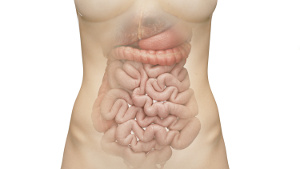 All the different B vitamins are of vital importance to our energy levels, nervous system, skin, hair, and health in general. Our daily diet is the primary source of the vitamins but the intestinal flora is able to synthesize, consume, and compete for vitamin B in the host. Interactions between the body and the gut flora is therefore important for how we absorb and utilize the different B vitamins. On the other hand, lack of B vitamins or supplementation with B vitamins can also affect our gut flora, according to a review article that is published in Frontiers in Nutrition.
All the different B vitamins are of vital importance to our energy levels, nervous system, skin, hair, and health in general. Our daily diet is the primary source of the vitamins but the intestinal flora is able to synthesize, consume, and compete for vitamin B in the host. Interactions between the body and the gut flora is therefore important for how we absorb and utilize the different B vitamins. On the other hand, lack of B vitamins or supplementation with B vitamins can also affect our gut flora, according to a review article that is published in Frontiers in Nutrition. Lack of vitamin B12 and folic acid increases the risk of Alzheimer’s disease, which is because these B vitamins regulate blood levels of homocysteine that must be below a certain threshold. Apparently, men and women react differently to B vitamins and folic acid with regard to cognitive functions, according to a study that is published in Nutrients. The risk of developing Alzheimer’s disease is also lower among younger people and among those who drink tea or coffee. Unfortunately, many older people lack these particular B vitamins because of poor diet habits, low stomach acid, or the use of various medical drugs.
Lack of vitamin B12 and folic acid increases the risk of Alzheimer’s disease, which is because these B vitamins regulate blood levels of homocysteine that must be below a certain threshold. Apparently, men and women react differently to B vitamins and folic acid with regard to cognitive functions, according to a study that is published in Nutrients. The risk of developing Alzheimer’s disease is also lower among younger people and among those who drink tea or coffee. Unfortunately, many older people lack these particular B vitamins because of poor diet habits, low stomach acid, or the use of various medical drugs. The B vitamin biotin reduces neurological brain damage that is caused by manganese and resembles Parkinson’s disease. Although manganese is an essential mineral, excessive intake can act as a neurotoxin. However, according to a study published in Science Signaling, biotin appears to have a therapeutic effect on Parkinson-like symptoms by promoting the production of the neurotransmitter dopamine, which is important for the nervous system and mood.
The B vitamin biotin reduces neurological brain damage that is caused by manganese and resembles Parkinson’s disease. Although manganese is an essential mineral, excessive intake can act as a neurotoxin. However, according to a study published in Science Signaling, biotin appears to have a therapeutic effect on Parkinson-like symptoms by promoting the production of the neurotransmitter dopamine, which is important for the nervous system and mood. According to Danish research, more than one in three women suspect that their birth control pills cause side effects. Other studies show that birth control pills affect the body’s ability to utilize several different B vitamins, vitamin C, vitamin E, magnesium, selenium, and zinc. The lack of these essential nutrients contributes to a number of common side effects such as fluid retention, blood clots, cancer, and depression.
According to Danish research, more than one in three women suspect that their birth control pills cause side effects. Other studies show that birth control pills affect the body’s ability to utilize several different B vitamins, vitamin C, vitamin E, magnesium, selenium, and zinc. The lack of these essential nutrients contributes to a number of common side effects such as fluid retention, blood clots, cancer, and depression. The rate of eating disturbances among children, teenagers, and adults has increased in the past year. Health authorities typically focus on cultural and psychosocial causes and therapies, but the treatments often drag out and are inadequate. What is equally important is to look at whether the patients lack essential nutrients that are important for the brain, the nervous system, the appetite, and the sense of smell and taste. Clinical research from the past decades has shown that anorexia and bulimia in particular can often be treated with zinc and various other nutrients, while chromium is important for maintaining stable blood sugar. The use of the right supplements combined with different therapy forms may therefore be the right way to obtain permanent results.
The rate of eating disturbances among children, teenagers, and adults has increased in the past year. Health authorities typically focus on cultural and psychosocial causes and therapies, but the treatments often drag out and are inadequate. What is equally important is to look at whether the patients lack essential nutrients that are important for the brain, the nervous system, the appetite, and the sense of smell and taste. Clinical research from the past decades has shown that anorexia and bulimia in particular can often be treated with zinc and various other nutrients, while chromium is important for maintaining stable blood sugar. The use of the right supplements combined with different therapy forms may therefore be the right way to obtain permanent results.
 Choline is one of the B vitamins and is necessary for our central nervous system, energy turnover, lipid metabolism, and many other functions. It appears to be a somewhat forgotten nutrient, and science now links choline deficiency to Alzheimer’s disease and cardiovascular diseases, according to a study that is published in the journal Aging Cell.
Choline is one of the B vitamins and is necessary for our central nervous system, energy turnover, lipid metabolism, and many other functions. It appears to be a somewhat forgotten nutrient, and science now links choline deficiency to Alzheimer’s disease and cardiovascular diseases, according to a study that is published in the journal Aging Cell. Type 2 diabetes is spreading like a bushfire, and taking the diabetes drug metformin increases the risk of vitamin B12 and vitamin B6 deficiencies. Lacking these two important B vitamins is associated with fatigue and cognitive dysfunction that resembles dementia. This was shown in a study that is published in The Journal of Clinical Endocrinology and Metabolism. An earlier study that was presented at an endocrinology conference in Glasgow suggested that type 2 diabetics that take metformin on a regular basis have their vitamin B12 status checked once a year to prevent irreparable damage to the nervous system. It is also important to focus on vitamin B6, which is also crucial for the brain and nervous system.
Type 2 diabetes is spreading like a bushfire, and taking the diabetes drug metformin increases the risk of vitamin B12 and vitamin B6 deficiencies. Lacking these two important B vitamins is associated with fatigue and cognitive dysfunction that resembles dementia. This was shown in a study that is published in The Journal of Clinical Endocrinology and Metabolism. An earlier study that was presented at an endocrinology conference in Glasgow suggested that type 2 diabetics that take metformin on a regular basis have their vitamin B12 status checked once a year to prevent irreparable damage to the nervous system. It is also important to focus on vitamin B6, which is also crucial for the brain and nervous system. Vitamin B6 is important for energy levels, the nervous system, our mood, our immune system, our hormone balance, and a number of other functions. This vitamin is of vital importance to our physical and mental well-being but a variety of factors may lead to a deficiency. This article will provide you with information about vitamin B6 and the 11 different symptoms that a deficiency may cause.
Vitamin B6 is important for energy levels, the nervous system, our mood, our immune system, our hormone balance, and a number of other functions. This vitamin is of vital importance to our physical and mental well-being but a variety of factors may lead to a deficiency. This article will provide you with information about vitamin B6 and the 11 different symptoms that a deficiency may cause. In ancient times when our ancestors hunted, they consumed every inch of the animal – from one end to another. Organ meat such as the liver, the heart, and the kidneys were delicacies that contained far more essential nutrients than other parts of the animal. In Western countries, we primarily consume muscle meat. In addition, animals often get unnatural fodder with suboptimal nutrient content. This results in deficiencies and an imbalance between amino acids and fatty acids. In the following article, you can read more about organ meats (also known as offal), bone marrow, and bone broth and their high content of essential amino acids, vitamin B12, iron, selenium, Q10, calcium, magnesium, collagen, glucosamine, CLA, and other vital nutrients. Also, you can read more about why it makes sense to choose meat from free-range livestock.
In ancient times when our ancestors hunted, they consumed every inch of the animal – from one end to another. Organ meat such as the liver, the heart, and the kidneys were delicacies that contained far more essential nutrients than other parts of the animal. In Western countries, we primarily consume muscle meat. In addition, animals often get unnatural fodder with suboptimal nutrient content. This results in deficiencies and an imbalance between amino acids and fatty acids. In the following article, you can read more about organ meats (also known as offal), bone marrow, and bone broth and their high content of essential amino acids, vitamin B12, iron, selenium, Q10, calcium, magnesium, collagen, glucosamine, CLA, and other vital nutrients. Also, you can read more about why it makes sense to choose meat from free-range livestock.
 The majority of sexually active people contract HPV (human papilloma virus), of which there are several types. Normally, the infection goes away by itself but in some cases it becomes chronic. This increases the risk of serious cell changes in the cervix which, in worst case, can result in cervical cancer. An American study has found that having adequate levels of five different antioxidants – albumin plus vitamins A, B2, E, and folic acid – may lower papilloma virus infections that are linked to cervical cancer.
The majority of sexually active people contract HPV (human papilloma virus), of which there are several types. Normally, the infection goes away by itself but in some cases it becomes chronic. This increases the risk of serious cell changes in the cervix which, in worst case, can result in cervical cancer. An American study has found that having adequate levels of five different antioxidants – albumin plus vitamins A, B2, E, and folic acid – may lower papilloma virus infections that are linked to cervical cancer.
 Most people have experienced a normal headache, while migraines are far more complex. Although the pain can be caused by a number of factors, essential nutrients such as B vitamins, vitamin D, magnesium, fish oil, and coenzyme Q10 may play a vital role according to a review article that is published in Current Pain and Headache Reports. The authors describe how certain nutrients affect underlying mechanisms that may prevent or mitigate different types of headaches.
Most people have experienced a normal headache, while migraines are far more complex. Although the pain can be caused by a number of factors, essential nutrients such as B vitamins, vitamin D, magnesium, fish oil, and coenzyme Q10 may play a vital role according to a review article that is published in Current Pain and Headache Reports. The authors describe how certain nutrients affect underlying mechanisms that may prevent or mitigate different types of headaches. Several studies have revealed that B vitamins strengthen the nervous system and reduce symptoms of stress. However, very few studies have looked at how the individual B vitamins work. A new placebo-controlled study that is published in the science journal, Human Psychopharmacology, appears to show that high-dosed vitamin B6 boosts the body’s formation of a certain neurotransmitter that blocks the exchange of undesirable impulses between brain cells, and this has a calming effect. In addition, vitamin B6 seems to reduce symptoms of depression
Several studies have revealed that B vitamins strengthen the nervous system and reduce symptoms of stress. However, very few studies have looked at how the individual B vitamins work. A new placebo-controlled study that is published in the science journal, Human Psychopharmacology, appears to show that high-dosed vitamin B6 boosts the body’s formation of a certain neurotransmitter that blocks the exchange of undesirable impulses between brain cells, and this has a calming effect. In addition, vitamin B6 seems to reduce symptoms of depression Sales of plant-based meat, also known as meat analogue, has increased for environmental reasons and a number of other reasons. However, even if meat analogue does resemble regular animal meat it has an entirely different nutritional value. According to a study from Duke University in the United States, real meat contains 22 different nutrients and metabolites that you do not get from meat analogue. On the other hand, meat based on vegetarian sources contains 31 nutrients and metabolites that are not found in normal meat. The largest difference between the two, according to the scientists, lies in their content of amino acids, peptides, vitamins, phenols, and fatty acids. The researchers also mention that a diet based on vegetable and animal products is complementary because it contains more nutrients.
Sales of plant-based meat, also known as meat analogue, has increased for environmental reasons and a number of other reasons. However, even if meat analogue does resemble regular animal meat it has an entirely different nutritional value. According to a study from Duke University in the United States, real meat contains 22 different nutrients and metabolites that you do not get from meat analogue. On the other hand, meat based on vegetarian sources contains 31 nutrients and metabolites that are not found in normal meat. The largest difference between the two, according to the scientists, lies in their content of amino acids, peptides, vitamins, phenols, and fatty acids. The researchers also mention that a diet based on vegetable and animal products is complementary because it contains more nutrients. Folic acid supplements are typically recommended to people with anemia and to expecting mothers. However, folic acid supplements can also be important for the cardiovascular system, the brain and memory, and for preventing stroke. The widespread lack of this nutrient is a result of poor diets, pregnancy, ageing, alcohol abuse, and the consumption of birth control pills and various types of medicine.
Folic acid supplements are typically recommended to people with anemia and to expecting mothers. However, folic acid supplements can also be important for the cardiovascular system, the brain and memory, and for preventing stroke. The widespread lack of this nutrient is a result of poor diets, pregnancy, ageing, alcohol abuse, and the consumption of birth control pills and various types of medicine. Blood poisoning, also called sepsis, is a life-threatening condition that requires immediate medical attention. A combination of high-dosed, intravenously administered vitamin C may, however, shorten the hospital stay and lower the risk of dying, according to a study that is published in Journal of the American Medical Association. The study supports earlier research where a combination of intravenous vitamin C and vitamin B1 delivered even better results. These are simple and inexpensive therapies that can save lives by supporting the immune system and limiting damage to the cardiovascular system, the lungs, and other tissues.
Blood poisoning, also called sepsis, is a life-threatening condition that requires immediate medical attention. A combination of high-dosed, intravenously administered vitamin C may, however, shorten the hospital stay and lower the risk of dying, according to a study that is published in Journal of the American Medical Association. The study supports earlier research where a combination of intravenous vitamin C and vitamin B1 delivered even better results. These are simple and inexpensive therapies that can save lives by supporting the immune system and limiting damage to the cardiovascular system, the lungs, and other tissues.
 Vitamin B6 is important for our energy levels, immune defense, nervous system, and a host of other functions. Vitamin B6 may even be able to reduce the severity of COVID-19 infections, according to an article written by Japanese, Chinese, and Thai scientists and published in Frontiers in Nutrition. The researchers refer to several clinical studies that show how vitamin C, vitamin D, magnesium, and zinc are able to reduce serious symptoms in COVID-19 patients, and they call for more studies of vitamin B6, simply because patients that are severely affected by COVID-19 often suffer from traumatic diseases and lack of several essential nutrients.
Vitamin B6 is important for our energy levels, immune defense, nervous system, and a host of other functions. Vitamin B6 may even be able to reduce the severity of COVID-19 infections, according to an article written by Japanese, Chinese, and Thai scientists and published in Frontiers in Nutrition. The researchers refer to several clinical studies that show how vitamin C, vitamin D, magnesium, and zinc are able to reduce serious symptoms in COVID-19 patients, and they call for more studies of vitamin B6, simply because patients that are severely affected by COVID-19 often suffer from traumatic diseases and lack of several essential nutrients.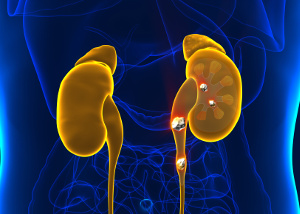 Kidney stones can be extremely painful, and there is a rather large risk that they reoccur at a later time. What you eat means a lot and your diet is therefore an important key to prevention. It is important to get plenty of magnesium and vitamin B6, whereas you should try to avoid oxalate-rich food sources like spinach, nuts, root vegetables, food with high soy content, rhubarb, berries, and dark chocolate. All of these items contain a lot of oxalate that may contribute to the formation of kidney stones. If you take magnesium in supplement form, make sure to choose a source that the body can absorb properly. Also, drink plenty of water, according to an article in the Norwegian health magazine Vitenskap og Fornuft.
Kidney stones can be extremely painful, and there is a rather large risk that they reoccur at a later time. What you eat means a lot and your diet is therefore an important key to prevention. It is important to get plenty of magnesium and vitamin B6, whereas you should try to avoid oxalate-rich food sources like spinach, nuts, root vegetables, food with high soy content, rhubarb, berries, and dark chocolate. All of these items contain a lot of oxalate that may contribute to the formation of kidney stones. If you take magnesium in supplement form, make sure to choose a source that the body can absorb properly. Also, drink plenty of water, according to an article in the Norwegian health magazine Vitenskap og Fornuft. People suffering from the Crohn’s disease, an inflammatory bowel disorder, often lack folic acid and vitamin B12. It is also known that this disease can be triggered by an infection with Mycobacterium avium subspecies paratuberculosis (MAP), a type of bacteria that can survives in pasteurized milk. A new study that is published in Nutrients has found why lack of folic acid and vitamin B12 disrupts the immune defense, thereby contributing to chronic inflammation that can occur in the wake of an infection with MAP.
People suffering from the Crohn’s disease, an inflammatory bowel disorder, often lack folic acid and vitamin B12. It is also known that this disease can be triggered by an infection with Mycobacterium avium subspecies paratuberculosis (MAP), a type of bacteria that can survives in pasteurized milk. A new study that is published in Nutrients has found why lack of folic acid and vitamin B12 disrupts the immune defense, thereby contributing to chronic inflammation that can occur in the wake of an infection with MAP.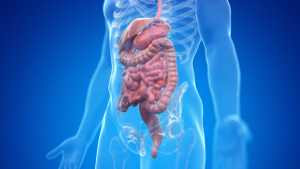 Biotin, one of the B vitamins, is essential for numerous metabolic processes, and a biotin deficiency may be associated with inflammatory bowel disease (IBD). According to a new study that is published in Nutrients, a biotin deficiency can also have a negative impact on the intestinal flora and result in a suppression of symbiotic bacteria and a replication of harmful, dysbiotic bacteria. The scientists say that a disrupted gut flora caused by a biotin deficiency may contribute to inflammatory bowel disorders.
Biotin, one of the B vitamins, is essential for numerous metabolic processes, and a biotin deficiency may be associated with inflammatory bowel disease (IBD). According to a new study that is published in Nutrients, a biotin deficiency can also have a negative impact on the intestinal flora and result in a suppression of symbiotic bacteria and a replication of harmful, dysbiotic bacteria. The scientists say that a disrupted gut flora caused by a biotin deficiency may contribute to inflammatory bowel disorders. Vitamin B12 is only found in animal sources, which is why vegetarians and vegans risk getting too little. If children lack vitamin B12 it may result in underdeveloped motor skills and anemia, according to a study from Burkina Faso that is conducted in collaboration with the University of Copenhagen and Doctors Without Borders (Médecins sans Frontières). The scientists point out that vitamin B12 deficiencies are a big and overlooked problem and that normal B12 supplements are often not enough so new solutions are required.
Vitamin B12 is only found in animal sources, which is why vegetarians and vegans risk getting too little. If children lack vitamin B12 it may result in underdeveloped motor skills and anemia, according to a study from Burkina Faso that is conducted in collaboration with the University of Copenhagen and Doctors Without Borders (Médecins sans Frontières). The scientists point out that vitamin B12 deficiencies are a big and overlooked problem and that normal B12 supplements are often not enough so new solutions are required. Vitamin B3 plays a crucial role in our brain and nervous system, and it is also important for our mental well-being. Studies suggest that lack of vitamin B3 increases the risk of dementia, Alzheimer’s disease, Parkinson’s disease, and schizophrenia. Moreover, epidemiological studies show that diets without vitamin B3 in them tend to cause aggression and an increased rate of homicide. Too little B3 can be caused by dietary shortages and environmental factors, but it also appears that some people have an increased need for the nutrient due to genetic variations and problems with utilizing the vitamin.
Vitamin B3 plays a crucial role in our brain and nervous system, and it is also important for our mental well-being. Studies suggest that lack of vitamin B3 increases the risk of dementia, Alzheimer’s disease, Parkinson’s disease, and schizophrenia. Moreover, epidemiological studies show that diets without vitamin B3 in them tend to cause aggression and an increased rate of homicide. Too little B3 can be caused by dietary shortages and environmental factors, but it also appears that some people have an increased need for the nutrient due to genetic variations and problems with utilizing the vitamin.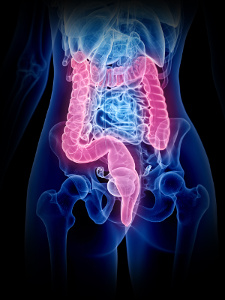 The most common inflammatory bowel diseases are Crohn’s disease and ulcerative colitis. Lack of certain nutrients can contribute to the development of these conditions. On the other hand, the diseases and the therapies used to treat them may also impair the body’s ability to absorb or utilize certain nutrients, thereby starting a vicious cycle that can make the disease worse. This was demonstrated in a new Greek study that is published in Nutrients. Chronic inflammatory bowel diseases primarily occur in the Western countries and especially at northern latitudes, which suggests that sun exposure and typically Western diets pay a major role in the development of these diseases.
The most common inflammatory bowel diseases are Crohn’s disease and ulcerative colitis. Lack of certain nutrients can contribute to the development of these conditions. On the other hand, the diseases and the therapies used to treat them may also impair the body’s ability to absorb or utilize certain nutrients, thereby starting a vicious cycle that can make the disease worse. This was demonstrated in a new Greek study that is published in Nutrients. Chronic inflammatory bowel diseases primarily occur in the Western countries and especially at northern latitudes, which suggests that sun exposure and typically Western diets pay a major role in the development of these diseases. A team of scientists from Århus University Hospital has discovered that high-doses supplementation with vitamin B1 can help against chronic fatigue that is seen with chronic inflammatory bowel diseases like Crohn’s disease and ulcerative colitis. High doses of vitamin B1 may even help against chronic fatigue in fibromyalgia and other neurological disorders. The scientists have not yet mapped out how the large vitamin doses affect the brain and energy levels and several theories are on the table.
A team of scientists from Århus University Hospital has discovered that high-doses supplementation with vitamin B1 can help against chronic fatigue that is seen with chronic inflammatory bowel diseases like Crohn’s disease and ulcerative colitis. High doses of vitamin B1 may even help against chronic fatigue in fibromyalgia and other neurological disorders. The scientists have not yet mapped out how the large vitamin doses affect the brain and energy levels and several theories are on the table. A good night’s sleep with accompanying dream activity is essential. It helps us recharge our batteries and process the things that have happened during the day. Magnesium is important for our ability to relax, which helps us fall asleep faster. According to an Australian study, high-dosed supplementation with vitamin B6 just before bedtime helps us remember our dreams. Moreover, magnesium and vitamin B6 have a synergistic effect on stress, so it is vital to get enough of these nutrients, as stress is a frequent cause of poor sleep. Magnesium and vitamin B6 are also important for the body’s ability to produce the sleep hormone melatonin.
A good night’s sleep with accompanying dream activity is essential. It helps us recharge our batteries and process the things that have happened during the day. Magnesium is important for our ability to relax, which helps us fall asleep faster. According to an Australian study, high-dosed supplementation with vitamin B6 just before bedtime helps us remember our dreams. Moreover, magnesium and vitamin B6 have a synergistic effect on stress, so it is vital to get enough of these nutrients, as stress is a frequent cause of poor sleep. Magnesium and vitamin B6 are also important for the body’s ability to produce the sleep hormone melatonin. Global heating and the whole climate debate have greatly increased the number of vegans and vegetarians. Their intensions may be good, but what they do not know is that their lifestyle can lead to serious health problems. A Spanish study of vegetarians and vegans has shown that 11% of the study participants had subclinical or clinical vitamin B12 deficiency. Earlier studies supporting this finding. Because the problem is insidious, it is often difficult to see the link between the deficiency and the symptoms caused by anemia or disturbances in the nervous system. The lack of vitamin B12 may also increase the risk of impaired fertility and development disturbances in the fetus. It is therefore a good idea for vegans and vegetarians to take a vitamin B12 supplement.
Global heating and the whole climate debate have greatly increased the number of vegans and vegetarians. Their intensions may be good, but what they do not know is that their lifestyle can lead to serious health problems. A Spanish study of vegetarians and vegans has shown that 11% of the study participants had subclinical or clinical vitamin B12 deficiency. Earlier studies supporting this finding. Because the problem is insidious, it is often difficult to see the link between the deficiency and the symptoms caused by anemia or disturbances in the nervous system. The lack of vitamin B12 may also increase the risk of impaired fertility and development disturbances in the fetus. It is therefore a good idea for vegans and vegetarians to take a vitamin B12 supplement.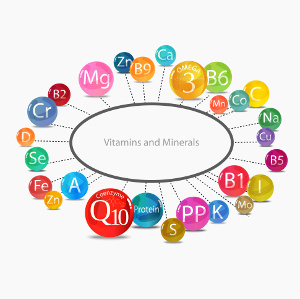 There are around 750,000 people in Denmark who take several medical drugs per day, and the number of users is on the rise. What many people are unaware of is that different drugs can disrupt the body’s ability to absorb or utilize one or several nutrients, especially things like B vitamins, vitamin C, vitamin D, vitamin K2, magnesium, potassium, calcium, zinc, iron, and coenzyme Q10. It is therefore vital to get sufficient amounts of the mentioned nutrients to reduce the risk of adverse effects.
There are around 750,000 people in Denmark who take several medical drugs per day, and the number of users is on the rise. What many people are unaware of is that different drugs can disrupt the body’s ability to absorb or utilize one or several nutrients, especially things like B vitamins, vitamin C, vitamin D, vitamin K2, magnesium, potassium, calcium, zinc, iron, and coenzyme Q10. It is therefore vital to get sufficient amounts of the mentioned nutrients to reduce the risk of adverse effects.
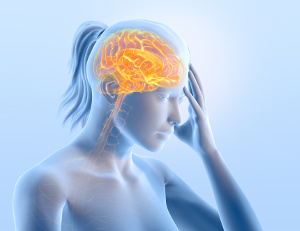
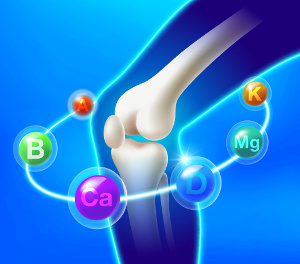
 Metabolic syndrome, which is an early stage of diabetes, is spreading like a bushfire. This condition is characterized by overweight, hypertension, hypercholesterolemia, and disrupted blood sugar metabolism. The diet plays a major role, and scientists have found a direct link between the intake and serum levels of vitamin B6, folic acid (vitamin B9), and vitamin B12, according to a large American population study that is published in JAMA Network Open. The authors also address how these B vitamins can help improve the glucose metabolism and prevent metabolic syndrome.
Metabolic syndrome, which is an early stage of diabetes, is spreading like a bushfire. This condition is characterized by overweight, hypertension, hypercholesterolemia, and disrupted blood sugar metabolism. The diet plays a major role, and scientists have found a direct link between the intake and serum levels of vitamin B6, folic acid (vitamin B9), and vitamin B12, according to a large American population study that is published in JAMA Network Open. The authors also address how these B vitamins can help improve the glucose metabolism and prevent metabolic syndrome.
 PCOS – or polycystic ovary syndrome – is a problem that occurs in 5-10 percent of women of childbearing age. It is the most common cause of involuntary infertility. Related symptoms include tiredness, hirsutism (male hair growth), acne, and irregular menstrual periods. PCOS is often linked to instable blood sugar, increased risk of insulin resistance, overweight, cardiovascular disease, type 2 diabetes, and autoimmune diseases like Hashimoto’s thyroiditis that causes slow metabolism. Diet and exercise mean a lot in terms of prevention and treatment. The same is the case with different vitamins and minerals. We will be looking closer at B vitamins, vitamin D, vitamin E, and coenzyme Q10, plus magnesium, zinc, selenium, chromium, iodine, and fish oil. We will also be looking at how relevant supplements, according to science, can help control blood sugar levels and the hormone balance.
PCOS – or polycystic ovary syndrome – is a problem that occurs in 5-10 percent of women of childbearing age. It is the most common cause of involuntary infertility. Related symptoms include tiredness, hirsutism (male hair growth), acne, and irregular menstrual periods. PCOS is often linked to instable blood sugar, increased risk of insulin resistance, overweight, cardiovascular disease, type 2 diabetes, and autoimmune diseases like Hashimoto’s thyroiditis that causes slow metabolism. Diet and exercise mean a lot in terms of prevention and treatment. The same is the case with different vitamins and minerals. We will be looking closer at B vitamins, vitamin D, vitamin E, and coenzyme Q10, plus magnesium, zinc, selenium, chromium, iodine, and fish oil. We will also be looking at how relevant supplements, according to science, can help control blood sugar levels and the hormone balance. Vitamin B1 is particularly important for carbohydrate metabolism, mental balance, and the production of gastric juice, which is essential for your digestion. Deficiencies and poor utilization of the nutrient typically occur as a result of unhealthy diets, lack of magnesium, overconsumption of sugar, alcohol, and other stimulants, and regular use of birth control pills and diuretics. The reason why alcoholics can binge drink is chronic vitamin B1 deficiency and life-threatening brain inflammation, both of which are problems that require immediate attention, according to a new review article in StatPearls. It is also believed that large quantities of vitamin B1 may prevent mosquito bites, but is this really true?
Vitamin B1 is particularly important for carbohydrate metabolism, mental balance, and the production of gastric juice, which is essential for your digestion. Deficiencies and poor utilization of the nutrient typically occur as a result of unhealthy diets, lack of magnesium, overconsumption of sugar, alcohol, and other stimulants, and regular use of birth control pills and diuretics. The reason why alcoholics can binge drink is chronic vitamin B1 deficiency and life-threatening brain inflammation, both of which are problems that require immediate attention, according to a new review article in StatPearls. It is also believed that large quantities of vitamin B1 may prevent mosquito bites, but is this really true? Glioblastoma is a the most common type of brain tumor and is very aggressive. Existing therapies are not all that effective and most people die within a few years after being diagnosed with the disease. It is essential to have more focus on prevention, and diet plays a major role. According to a Chinese population study, vitamins B1, B2, B2, and B9 (folic acid) are associated with a reduced risk of developing glioblastoma. The scientists mention the different B vitamins and their role in brain health and cancer prevention and stress the importance of knowing about the factors that inhibit the body’s uptake and utilization of these vitamins.
Glioblastoma is a the most common type of brain tumor and is very aggressive. Existing therapies are not all that effective and most people die within a few years after being diagnosed with the disease. It is essential to have more focus on prevention, and diet plays a major role. According to a Chinese population study, vitamins B1, B2, B2, and B9 (folic acid) are associated with a reduced risk of developing glioblastoma. The scientists mention the different B vitamins and their role in brain health and cancer prevention and stress the importance of knowing about the factors that inhibit the body’s uptake and utilization of these vitamins. The number of seniors worldwide is increasing and more and more are affected by Alzheimer’s disease, the leading cause of dementia. We should therefore focus much more on this health problem that comes with an enormous human and socio-economic price tag. According to a new meta-analysis, supplementation with B vitamins appears to prevent or delay mild cognitive impairment in older people, which is normally an early sign of Alzheimer’s disease. In fact, supplementation with B vitamins may even represent an inexpensive therapy form with a huge potential.
The number of seniors worldwide is increasing and more and more are affected by Alzheimer’s disease, the leading cause of dementia. We should therefore focus much more on this health problem that comes with an enormous human and socio-economic price tag. According to a new meta-analysis, supplementation with B vitamins appears to prevent or delay mild cognitive impairment in older people, which is normally an early sign of Alzheimer’s disease. In fact, supplementation with B vitamins may even represent an inexpensive therapy form with a huge potential.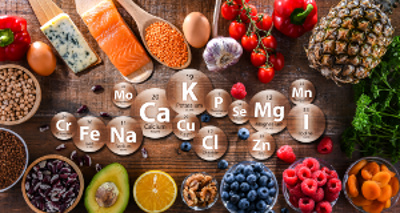
 Migraine headaches, a problem that affects far more women than men, is one of the diseases that costs most sick days, and there is no medical treatment that can cure the underlying cause. What we eat appears to play a major role, which is because foods such as matured cheese, chocolate, caffeinated beverages, red wine, and monosodium glutamate (MSG) can trigger migraines and headaches. Also, eating an unbalanced diet that is low in specific nutrients such as magnesium, B vitamins, and Q10 can disrupt certain metabolic processes, thereby setting off an attack. This was seen in a new study that is published in Frontiers in Nutrition.
Migraine headaches, a problem that affects far more women than men, is one of the diseases that costs most sick days, and there is no medical treatment that can cure the underlying cause. What we eat appears to play a major role, which is because foods such as matured cheese, chocolate, caffeinated beverages, red wine, and monosodium glutamate (MSG) can trigger migraines and headaches. Also, eating an unbalanced diet that is low in specific nutrients such as magnesium, B vitamins, and Q10 can disrupt certain metabolic processes, thereby setting off an attack. This was seen in a new study that is published in Frontiers in Nutrition. The diet’s content of vitamin C, vitamin B6, vitamin B12, folic acid, and other vitamins has a positive impact on our mental and physical health and well-being Lack of vitamins may even remedy depression and chronic pain, according to a Japanese study of seniors. The number of seniors worldwide is increasing with more and more people being affected by physical and mental disease. Therefore, scientists want to take a closer look at the diet and its influence on quality of life measured by different accounts.
The diet’s content of vitamin C, vitamin B6, vitamin B12, folic acid, and other vitamins has a positive impact on our mental and physical health and well-being Lack of vitamins may even remedy depression and chronic pain, according to a Japanese study of seniors. The number of seniors worldwide is increasing with more and more people being affected by physical and mental disease. Therefore, scientists want to take a closer look at the diet and its influence on quality of life measured by different accounts.
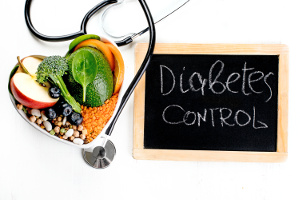
 Vitamin B12 is important for the development and function of our central nervous system. In the past decades, science has also found similarities between sclerosis and the neurological symptoms that occur in people who lack vitamin B12. In a new study that is published in Cell Reports, scientists have found the molecular relation between vitamin B12 and the function of supportive brain cells.
Vitamin B12 is important for the development and function of our central nervous system. In the past decades, science has also found similarities between sclerosis and the neurological symptoms that occur in people who lack vitamin B12. In a new study that is published in Cell Reports, scientists have found the molecular relation between vitamin B12 and the function of supportive brain cells. Non-alcoholic fatty liver disease (NAFLD) is an insidious disease that is spreading like a bushfire, and it is typically seen in connection with overweight. Many people with the disease develop a type of liver inflammation and scarring that can be potentially life-threatening. According to a study that is published in Journal of Hepatology, supplementation with vitamin B12 and folic acid (vitamin B9) can counteract the development of inflammation and scarring by lowering levels of the amino acid homocysteine. The scientists behind the study looked closer at homocysteine’s role in the pathogenicity of the disease.
Non-alcoholic fatty liver disease (NAFLD) is an insidious disease that is spreading like a bushfire, and it is typically seen in connection with overweight. Many people with the disease develop a type of liver inflammation and scarring that can be potentially life-threatening. According to a study that is published in Journal of Hepatology, supplementation with vitamin B12 and folic acid (vitamin B9) can counteract the development of inflammation and scarring by lowering levels of the amino acid homocysteine. The scientists behind the study looked closer at homocysteine’s role in the pathogenicity of the disease. Everyone is talking about the climate, and meat has lost popularity for a number of reasons. But let us keep our heads clear on the facts. There is a big difference between CO2 emissions, animal welfare, and the quality or quantity of meat on one hand and the nutritional aspects of meat on the other hand. Humans have been eating meat (including fish) for around two million years, and animal food sources have contributed to our large brains and development in general. Nonetheless, more and more people choose to become vegetarians, and the trend is especially popular among women. This gives rise for concern, as lack of protein, vitamin D, vitamin B12, iodine, selenium, iron, zinc and omega-3 fatty acids not only impairs fertility but even increases the risk of metabolic disorders, serious growth disturbances in children and a lot more. Some of these symptoms are insidious and therefore difficult to link to the diet.
Everyone is talking about the climate, and meat has lost popularity for a number of reasons. But let us keep our heads clear on the facts. There is a big difference between CO2 emissions, animal welfare, and the quality or quantity of meat on one hand and the nutritional aspects of meat on the other hand. Humans have been eating meat (including fish) for around two million years, and animal food sources have contributed to our large brains and development in general. Nonetheless, more and more people choose to become vegetarians, and the trend is especially popular among women. This gives rise for concern, as lack of protein, vitamin D, vitamin B12, iodine, selenium, iron, zinc and omega-3 fatty acids not only impairs fertility but even increases the risk of metabolic disorders, serious growth disturbances in children and a lot more. Some of these symptoms are insidious and therefore difficult to link to the diet. More and more people in the Western world shift to a plant-based diet but may find themselves challenged when it comes to getting enough of certain essential nutrients. A new German study shows that most vegetarians and vegans get enough vitamin B12, provided they take supplements. However, many lack iodine and iron. Also, plant-based diet fails to deliver enough vitamin D, and many lack selenium due to the nutrient-depleted farmland. A lot of deficiency diseases are insidious, which makes it difficult to link them to the diet. It is therefore a good idea for children and adults who are vegetarians or vegans to take relevant supplements.
More and more people in the Western world shift to a plant-based diet but may find themselves challenged when it comes to getting enough of certain essential nutrients. A new German study shows that most vegetarians and vegans get enough vitamin B12, provided they take supplements. However, many lack iodine and iron. Also, plant-based diet fails to deliver enough vitamin D, and many lack selenium due to the nutrient-depleted farmland. A lot of deficiency diseases are insidious, which makes it difficult to link them to the diet. It is therefore a good idea for children and adults who are vegetarians or vegans to take relevant supplements. Alcohol is one of the most compromising factors when it comes to public health, and alcohol abuse comes at an enormous cost, both to the individual and to society. A large alcohol consumption contributes as a factor to insidious dementia, but according to a new study from Taiwan, supplementing with vitamin B1 (thiamine) may prevent alcohol-induced dementia. The scientists that have conducted the study therefore point to vitamin B1 supplementation as having an important role in the treatment plan for people with alcohol abuse problems and to prevent dementia from developing or progressing.
Alcohol is one of the most compromising factors when it comes to public health, and alcohol abuse comes at an enormous cost, both to the individual and to society. A large alcohol consumption contributes as a factor to insidious dementia, but according to a new study from Taiwan, supplementing with vitamin B1 (thiamine) may prevent alcohol-induced dementia. The scientists that have conducted the study therefore point to vitamin B1 supplementation as having an important role in the treatment plan for people with alcohol abuse problems and to prevent dementia from developing or progressing.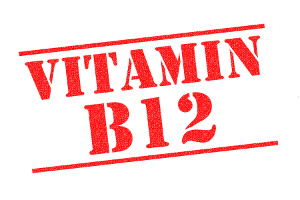 Neuropathic pain is caused by disease or damage in the somatosensory nervous system. According to a new review article that is published in the scientific journal Nutrients, it seems that therapy with vitamin B12 may have a positive effect on this type of pain. It also appears that vitamin B12 deficiency is rather common in people with diabetic neuropathy, which is a serious complication that may result in amputation in worst case. Therefore, it is vital that diabetics make sure to get enough vitamin B12. Patients with pain caused by peripheral neuropathy may also consider taking the other B vitamins and vitamin D.
Neuropathic pain is caused by disease or damage in the somatosensory nervous system. According to a new review article that is published in the scientific journal Nutrients, it seems that therapy with vitamin B12 may have a positive effect on this type of pain. It also appears that vitamin B12 deficiency is rather common in people with diabetic neuropathy, which is a serious complication that may result in amputation in worst case. Therefore, it is vital that diabetics make sure to get enough vitamin B12. Patients with pain caused by peripheral neuropathy may also consider taking the other B vitamins and vitamin D.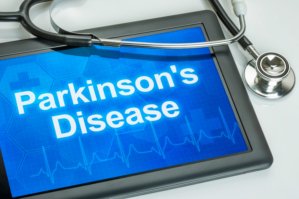 Parkinson’s disease, also known as shaking palsy, is one of the most common chronic disorders among older people. There is no effective cure at this point, and the only way to address the disease is to suppress the symptoms but that does not treat the underlying cause. Even though most cases of Parkinson’s disease are sporadic, it turns out that the hereditary variants of the disease are linked to mutations in a particular gene. A team of scientists from University of the Basque Country in Spain has discovered that vitamin B12 blocks the enzyme that is involved in these mutations. An earlier study has also shown that in newly diagnosed Parkinson’s patients who have low levels of vitamin B12 the disease develops faster than in patients with higher levels of the nutrient.
Parkinson’s disease, also known as shaking palsy, is one of the most common chronic disorders among older people. There is no effective cure at this point, and the only way to address the disease is to suppress the symptoms but that does not treat the underlying cause. Even though most cases of Parkinson’s disease are sporadic, it turns out that the hereditary variants of the disease are linked to mutations in a particular gene. A team of scientists from University of the Basque Country in Spain has discovered that vitamin B12 blocks the enzyme that is involved in these mutations. An earlier study has also shown that in newly diagnosed Parkinson’s patients who have low levels of vitamin B12 the disease develops faster than in patients with higher levels of the nutrient. Lack of vitamin B12 is known to cause fatigue, poor memory, cognitive impairment, and hippocampal atrophy. Supplementation with B12, on the other hand, can improve cognitive functions, according to a study that is published in Nutrients. The problem is that the signs of cognitive disturbance are insidious and therefore not automatically associated with a simple nutrient deficiency that is often a result of ageing, vegetarian diets, low stomach acid, or diabetes medication.
Lack of vitamin B12 is known to cause fatigue, poor memory, cognitive impairment, and hippocampal atrophy. Supplementation with B12, on the other hand, can improve cognitive functions, according to a study that is published in Nutrients. The problem is that the signs of cognitive disturbance are insidious and therefore not automatically associated with a simple nutrient deficiency that is often a result of ageing, vegetarian diets, low stomach acid, or diabetes medication. Deficiencies of vitamin B12 are widespread due to plant-based diets, aging processes, poor absorption, and certain types of medication. A B12 deficiency can cause anemia, fatigue, poor memory, infections, reduced fertility, impotence, and neurological diseases such as neuropathy, according to an article published in Cureus.
Deficiencies of vitamin B12 are widespread due to plant-based diets, aging processes, poor absorption, and certain types of medication. A B12 deficiency can cause anemia, fatigue, poor memory, infections, reduced fertility, impotence, and neurological diseases such as neuropathy, according to an article published in Cureus.

 Vitamin B3 has a therapeutic effect in the treatment of progressive muscle diseases, including mitochondrial myopathy that is caused by a defective cellular energy metabolism and which has no cure, according to a study from Helsinki University.
Vitamin B3 has a therapeutic effect in the treatment of progressive muscle diseases, including mitochondrial myopathy that is caused by a defective cellular energy metabolism and which has no cure, according to a study from Helsinki University.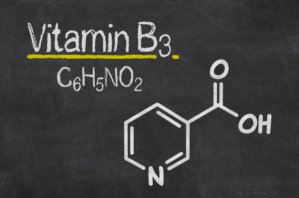 Swiss scientists have observed that if you take a type of vitamin B3 called nicotinamide riboside it increases the production of blood cells by improving their stem cells. This may help solve serious problems associated with anemia as a result of stem cell-based therapies that are used to treat leukemia and aggressive lymphomas.
Swiss scientists have observed that if you take a type of vitamin B3 called nicotinamide riboside it increases the production of blood cells by improving their stem cells. This may help solve serious problems associated with anemia as a result of stem cell-based therapies that are used to treat leukemia and aggressive lymphomas. Parkinson’s patients have less vitamin B3 in their blood due to interactions with medicine and certain other factors. Vitamin B3 is important for our energy turnover and some of the symptoms of Parkinson’s disease may be caused by lack of B3. On the other hand, vitamin B3 supplements can help by reducing fatigue, improving handwriting, and improving your mood, according to a study that is published in Frontiers of Aging Neuroscience. The scientists assume that giving supplements of vitamin B3 to patients with Parkinson’s disease has the potential to improve quality of life and delay the progression of their disease.
Parkinson’s patients have less vitamin B3 in their blood due to interactions with medicine and certain other factors. Vitamin B3 is important for our energy turnover and some of the symptoms of Parkinson’s disease may be caused by lack of B3. On the other hand, vitamin B3 supplements can help by reducing fatigue, improving handwriting, and improving your mood, according to a study that is published in Frontiers of Aging Neuroscience. The scientists assume that giving supplements of vitamin B3 to patients with Parkinson’s disease has the potential to improve quality of life and delay the progression of their disease. It is vital to take good care of your eyes throughout life to maintain good vision. Our eyes need a number of different vitamins, minerals, and fatty acids that are important for cellular function and for protecting against oxidative stress. In this article, you can read more about vitamin A, vitamin C, vitamin E, B vitamins, zinc, selenium, omega-3 fatty acids, and Q10 and their vital role in maintaining healthy vision. We will also look at certain antioxidants that are found in eggs, salmon, spinach, broccoli, red bell pepper, and blueberries.
It is vital to take good care of your eyes throughout life to maintain good vision. Our eyes need a number of different vitamins, minerals, and fatty acids that are important for cellular function and for protecting against oxidative stress. In this article, you can read more about vitamin A, vitamin C, vitamin E, B vitamins, zinc, selenium, omega-3 fatty acids, and Q10 and their vital role in maintaining healthy vision. We will also look at certain antioxidants that are found in eggs, salmon, spinach, broccoli, red bell pepper, and blueberries. Some people prefer to eat raw vegetables in combination with meat or fish or as entirely raw vegan diets. They believe it is healthier and delivers more energy. But the truth is that some vegetables are healthier and provide more antioxidants if you heat them. That’s the case with tomatoes, bell pepper, carrots, spinach, and mushrooms. And remember that raw mushrooms contain toxins that are broken down by cooking.
Some people prefer to eat raw vegetables in combination with meat or fish or as entirely raw vegan diets. They believe it is healthier and delivers more energy. But the truth is that some vegetables are healthier and provide more antioxidants if you heat them. That’s the case with tomatoes, bell pepper, carrots, spinach, and mushrooms. And remember that raw mushrooms contain toxins that are broken down by cooking. "After about one week of taking the Q10 supplement I could feel a huge difference," says 23-year old Alan Piccini, who has been suffering from extreme fatigue and muscle aches ever since he was a child.
"After about one week of taking the Q10 supplement I could feel a huge difference," says 23-year old Alan Piccini, who has been suffering from extreme fatigue and muscle aches ever since he was a child. “Taking capsules with co-enzyme Q10 has freed me of the severe side effects of my cholesterol lowering medicine,” Mrs Franken explains.
“Taking capsules with co-enzyme Q10 has freed me of the severe side effects of my cholesterol lowering medicine,” Mrs Franken explains.